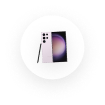M1 enhances Smart City Solutions with Nokia’s IMPACT IoT platform
- M1 to build highly efficient, reliable and secure Smart City IoT solutions, using Nokia’s IMPACT IoT platform
- Cloud-based IoT platform can integrate across all devices and smart applications deployed in Singapore and overseas
SINGAPORE, 21 January 2019 – Limited (M1) today announced enhancements to its Smart City Internet-of-Things (IoT) Solutions by using Nokia’s IMPACT IoT platform, which boosts M1’s capabilities to provide innovative IoT urban solutions in Singapore and overseas.
Since the launch of nationwide Narrowband-IoT (NB-IoT) in August 2017, M1 has rolled out various Smart City IoT initiatives including smart energy metering, smart street lightings, smart fleet management and smart logistics, as well as smart waste management. For example, using NB-IoT network for smart waste management, an IoT sensor is able to detect when a waste bin is full and prompt the cleaning service provider to remove the trash in a timely and on-demand manner. To further improve the performance of waste management collection, M1 can provide data analytics to aggregate and analyse the data.
M1 is one of the first companies in Asia Pacific to use Nokia’s IMPACT IoT platform, which allows M1 to efficiently deploy and manage its NB-IoT Smart City solutions. The platform supports NB-IoT and other low range (LoRa) protocols that provide low-power wide-area (LPWA) connectivity options for the connection of IoT devices. Additionally, it also boasts a Platform-as-a-Service (PaaS) layer, which provides a comprehensive suite of capabilities covering connectivity management, application enablement, and device management for enterprise and solution providers.
Being a cloud-based platform, it is scalable and able to perform crucial data collection, event processing, contextualisation and analytics at scale while enabling applications across all devices without geographic boundaries. In addition, the platform is integrated with cybersecurity technologies, including Nokia NetGuard, to secure IoT devices and data. These are essential for the management of the thousands of sensors and devices to be deployed in Smart Cities. This deployment strengthens M1’s ability to support governments and businesses in building a highly efficient, reliable and secure IoT ecosystem supporting Singapore and beyond.
“M1 has been actively participating in Smart City developments, bringing innovative new smart solutions to the city. Nokia is the ideal partner as they share the same ambition as M1 in shaping the future and technology of Smart City solutions catering to governments and business undergoing digital transformation. This move is one of the many steps that we are taking in our long-term goal of offering a host of Smart City IoT solutions to our customers. We will continue to harness our IoT capabilities and create new opportunities in Singapore and the region,”said Mr Alex Tan, Chief Innovation Officer, M1.
“The IMPACT platform is designed to help customers build and deploy a broad array of IoT applications, including Smart Cities. However, we do not just want to help cities be “Smart”. Our goal is to help them provide innovative digital services that improve the quality of lives. We are delighted to work with M1 to bring these new types of amazing capabilities to Singapore, while helping M1 to take advantage of the growing IoT business opportunities in the region,” said Mr Bhaskar Gorti, President, Nokia Software.
In 2017, M1 together with Nokia, deployed Southeast Asia’s first nationwide commercial NB-IoT network, to catalyse smart solutions innovation, supporting Singapore’s transformation into a Smart Nation. Earlier last year, M1 also partnered Nokia to conduct Nokia’s first 5G small cell trial in Southeast Asia.
About Nokia’s IMPACT IoT platform
The Nokia IMPACT IoT platform is a secure, standards-based platform on which to build and scale new IoT services. It manages data collection, event processing, device management, data contextualization, data analytics, security and applications enablement for any device, any protocol and across any application. It provides support for the NB-IoT and LoRa protocols to meet the need for low-power, wide area LPWA connectivity options for IoT devices.







